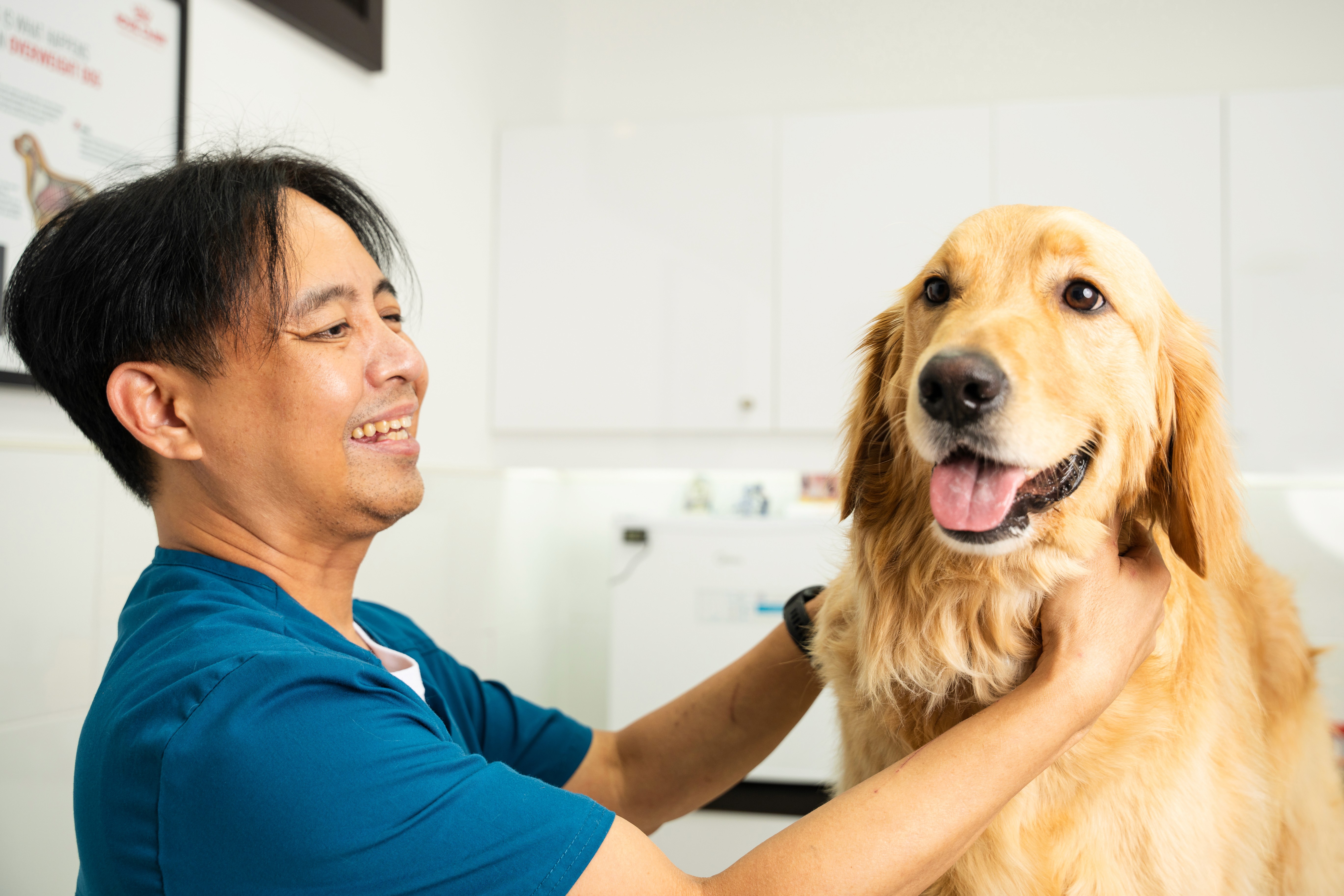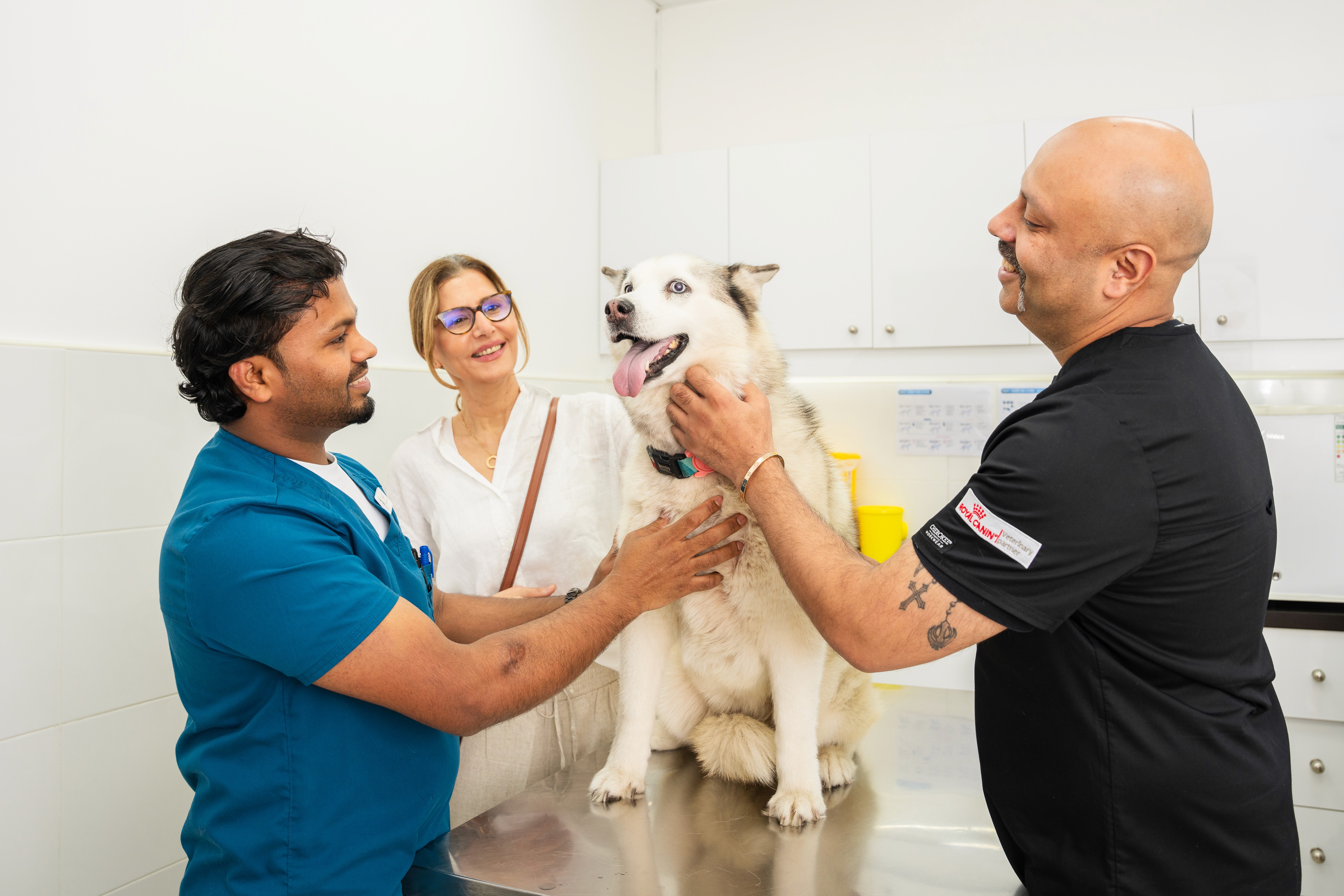10/01/2025
Your dog’s immune system protects them from illnesses, infections, and diseases. Like humans, a strong immune system is the foundation of good health in dogs. It acts as the body’s natural defense mechanism that helps fight off pathogens.
Dogs with compromised immune systems are prone to infections, allergies, and chronic conditions. Usually, some of the signs can appear subtly, which makes detection difficult. Common signs include:
Frequent infections or illnesses.
Chronic allergies or skin issues.
Lethargy or lack of energy.
Diarrhea and vomiting
Fortunately, many ways to support and strengthen your dog’s immune health are available. When your dog’s protection is up, you can help them avoid these signs and enjoy a healthy and happy life.
How to Boost Your Dog’s Immune System?
There are many ways to start when it comes to keeping your dog’s immune system in good condition. From a nutritious diet, regular exercise, and vet care, your dog will thank you for the care. Here are the ways you can boost your dog’s immune system:
Balanced and Nutritious Meals
A dog’s diet and nutrition are the core of boosting its immune system. Proper diet and nutrition provide the essential building blocks your dog needs for immune cells. By providing a balanced meal, you’ll help your best friend stay protected from diseases.
To make sure your dog’s immune system functions at its best, its diet should include:
Protein
High-quality protein is an important nutrient for the production of immune cells and antibodies. Choose lean sources of chicken, turkey, fish, or lamb. Dogs on commercial kibble should have food with meat listed as the primary ingredient.
Antioxidants
Antioxidants eliminate free radicals that can damage and weaken the immune system. Essential antioxidants for dogs include vitamin C, vitamin E, and beta-carotene. To start, some of the foods rich in these nutrients include blueberries, spinach, carrots, and sweet potatoes.
Omega-3 Fatty Acids
These healthy fats reduce inflammation and support overall immune health. They also promote healthy skin, a critical barrier against external pathogens, and improve joint health. Add omega-3-rich foods such as salmon, sardines, or fish oil supplements to your dog’s diet.
Vitamins and Minerals
Dogs need essential vitamins and minerals to keep their immune system operational. Some of the essential components include vitamin A, vitamin D, zinc, selenium, and B vitamins. To start, carrots, liver, eggs, fish, and lean meat should be viable options.
Regular Exercise

Another way to boost your dog’s immune system is by regular exercise. Regular physical activity increases your dog’s blood flow, which makes sure immune cells and nutrients are distributed efficiently throughout the body. This helps your dog’s body respond quickly to infections and repair tissues.
Exercising reduces stress hormones like cortisol, which can suppress immune function. Dogs that routinely play or walk will be less likely to experience stress-related health issues. Additionally, regular exercise helps your dog maintain a healthy weight and prevents immune system inefficiency.
To help your dog exercise, here are the best ways to do so:
Daily Walks
Walking is one of the simplest and most effective exercises for dogs of all breeds and ages. A 20–30-minute walk improves circulation, aids digestion and provides mental stimulation as your dog explores new scents and sights.
Fetch
This classic game encourages running and quick bursts of energy, which improve cardiovascular health. It’s also a great way to increase circulation and reduce stress.
Swimming
Swimming is a low-impact exercise that is helpful in boosting your dog’s immune system. The exercise works well in dogs with joint issues or arthritis. It strengthens muscles, improves their endurance, and is healthy for their mental health.
Agility Training
Agility exercises utilize jumps, tunnels, and other obstacles to create an amazing experience for dogs. These activities improve coordination, build strength, and keep high-energy dogs engaged.
Routine Vet Care
Regular visits to our vets are important for maintaining your dog’s immune system. Checkups are great times to ask for advice and help on keeping your dog’s body healthy. Preventive care helps detect diseases early on and keeps your dog’s health in check.
One helpful way to boost your dog’s immune system is through vaccinations. Vaccinations prepare the immune system to recognize and combat specific diseases, such as rabies, distemper, and parvovirus. Doing so will protect your dog from diseases that are hard to cure.
Additionally, vet visits will have regular parasite control treatments. Routine parasite control helps protect against internal and external parasites, boosting your dog’s immune system.
Stress Management

Just like humans, dogs are affected by stress. To boost your dog’s immune system, helping them deal with stress is part of the process. Pairing stress management with proper rest ensures your dog’s body and mind have the chance to recover and stay strong against potential health challenges.
When dogs get stressed, more cortisol is produced. As a result, high levels of cortisol can suppress your dog's immune system. When this happens, your dog will be more vulnerable to diseases and infections. Common signs of stress in dogs include:
Excessive barking or whining.
Destructive behaviors like chewing or digging.
Lethargy or withdrawal.
Diarrhea or loss of appetite.
To help your dogs stay stress-free, you can start with these helpful steps:
Establish a Routine
Dogs love a good routine. Set a consistent time for feeding, exercise, and bedtime, as these schedules provide a sense of security and reduce anxiety.
Provide Mental Stimulation
Interactive toys, puzzle feeders, and training exercises can keep your dog’s mind engaged, which will help them stay active and mentally focused.
Create a Calm Environment
Provide a quiet and comfortable space where your dog can retreat during noisy events or when feeling overwhelmed. This might include a crate or a cozy bed in an area of your home where people don’t usually stay.
Provide Ways to Socialize
Positive interactions with other dogs and humans help build confidence and reduce stress. Supervised playdates or visits to the dog park can be great for their mental health.
Proper Cleaning and Grooming
Keeping your dog’s environment clean and maintaining proper hygiene are other ways to boost your dog’s immune system. A well-maintained environment reduces exposure to harmful pathogens, while good grooming practices keep your dog clean and healthy.
Here are ways to keep your home clean:
Clean Living Areas Regularly
Clean your dog’s bedding, crates, and favorite resting spots frequently. Washing their bedding weekly and disinfecting crates or carriers prevents the buildup of allergens, bacteria, and fleas.
Remove waste from your yard promptly, as it can attract pests and spread parasites like worms. Keep grass trimmed to reduce the likelihood of flea and tick infestations.
Keep your house properly ventilated and avoid exposing your dog to cigarette smoke, strong chemicals, or dusty environments, which can irritate their respiratory system.
Safely Store Your Dog’s Food
Store your dog’s food in airtight containers to prevent contamination by pests or mold. Be sure to wash their food and water bowls with hot water and soap daily to prevent the growth of harmful bacteria.
Additionally, here are important parts of your dog’s grooming:
Regular Baths
Bathing your dog helps remove dirt, allergens, and parasites from their skin and coat. Use a dog-specific shampoo only, as any other product might damage and dry out your dog’s skin.
Brushing
Brushing removes loose hair, dirt, and dander while stimulating the skin’s natural oils to maintain a healthy coat. Regular brushing also gives you the chance to check your dog’s skin for any issues such as bumps, sores, and ticks.
Paw Care
Paw care is an important part of your dog’s physical health. Wipe your dog’s paws after walks, especially during rainy or snowy seasons when they might encounter road salt or mud.
Dental Hygiene
Poor dental health in dogs leads to infections and issues that can strain the immune system. Brush your dog’s teeth regularly with dog-safe toothpaste or provide dental chews to maintain oral health.
Ear Cleaning
Regularly clean your dog’s ears to prevent infections, especially in breeds prone to ear issues. Use vet-approved ear cleaners, and make sure to be careful when cleaning the ears.
Socialization and Mental Health

Another way to boost your dog’s immune system is by keeping them well-socialized and happy. A dog’s mental health is closely tied to their physical health, which means that a happy, well-socialized dog is more likely to have a strong immune system.
Socialization and mental stimulation reduce stress, boost overall well-being, and create a healthy environment for your dog’s body to thrive.
Having positive experiences with other dogs, people, and environments can help reduce stress and anxiety. By doing so, you’ll be able to prevent these issues from affecting your dog’s immune system.
Here are ways to help your dog socialize and improve their mental health:
Dog Playdates
Arrange regular, supervised play sessions with other friendly dogs. Regular dates can create friendships that will improve your dog’s mental health.
Visits to Dog Parks
Dog parks are great ways to help your dog socialize and play with other dogs. Indoor dog parks are great places to do this while also keeping your dog safe in the process.
New Environments
Take your dogs on different walks or trips to pet-friendly stores to help them adapt to new sights, sounds, and smells. Be sure to stay right by their side as the new experience might stress them out if they feel like they are alone.
The Importance of Sleep
Sleep is just as important for dogs as it is for us humans when it comes to maintaining a strong immune system. Insufficient sleep can weaken a dog’s defenses, making them more vulnerable to illness, infections, and chronic health conditions.
During sleep, the body engages in essential repair and regeneration processes, allowing the immune system to recover. Sleep also helps regulate your dog’s cortisol levels and, in turn, relieves stress in the immune system.
Here are signs your dog is not having enough sleep:
Increased irritability or restlessness.
Lethargy or low energy during the day.
Difficulty concentrating during training or play.
Frequent illness or slow recovery from infections.
To boost your dog’s immune system, make sure your dog is having adequate time to rest and sleep. Here’s a quick guide on how much sleep dogs need:
Puppies: 18 to 20 hours per day.
Adult Dogs: 10 to 14 hours per day.
Senior Dogs: 14 to 20 hours per day.
Conclusion
Boosting your dog’s immune system requires a great deal of effort from you as its pet owner. From providing its nutritional needs to keeping it mentally happy, your dog will need all the help it can get to have a healthy immune system.
Subscribe to Our
Newsletter
Sign up for weekly pet health tips and insights from our veterinarians.
